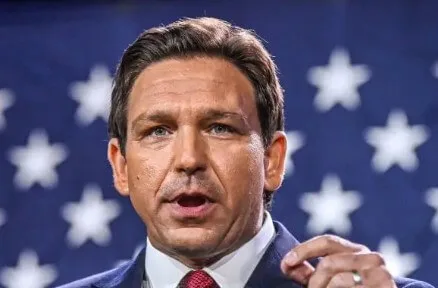
Image via Getty Images
Although the Medicaid continuous coverage requirement established during the COVID-19 pandemic is scheduled to end, Republican Gov. Ron DeSantis continues to refuse to sign on to the Affordable Care Act’s Medicaid expansion.
As Gov. Ron DeSantis works to defund diversity, equity, and inclusion programs at every public college in the state and pushes to pass a controversial Constitutional carry law that would allow people to carry guns without licenses or background checks, more than one million Floridians could lose their Medicaid coverage.
However, DeSantis once again didn’t mention plans to expand Medicaid during a news conference on the 2023-24 budget held on Wednesday.
This happened despite the fact that many in Florida are at risk of losing their coverage in 2023, while nearly 12% of the state’s population remains without healthcare coverage.
In fact, DeSantis has consistently refused to expand Medicaid requirements to cover nearly 2.6 million uninsured Floridians, according to the most recent US census figures. This places the Sunshine State well above the national average of 8.6%.
RELATED: MAGA Republicans Plan to Hold the Economy Hostage to Cut Social Security and Medicare
Alison Yager, executive director at the Health Justice Project, an advocacy group to bring expansion to Florida, calls it a “shameful showing. Florida ranks [near the bottom] for the rate of uninsured residents.”
A Crisis That Could Be Averted
When COVID-19 hit, the federal government offered states extra money to fund Medicaid. Because this was a health crisis, states were required to agree not to disenroll anybody who joined, or who was already enrolled in the program. That arrangement is about to end on March 31. States will have a year to go through their Medicaid enrollment files, removing anybody who cannot reestablish their eligibility.
Given that more than half of Medicaid recipients identify as Black, Hispanic, Asian American, or another non-white race or ethnicity, this is likely to have a disproportionate impact on low-income communities of color, according to the Medicaid and CHIP Payment and Access Commission (MACPAC), a nonpartisan legislative branch agency that provides policy and data analysis.
But when asked about the process of reevaluating eligibility for Medicaid recipients at the press conference, DeSantis didn’t offer specific details about the issue, although state agency leaders said that those found ineligible would be notified and provided alternative health care plans, such as the Florida Healthy Kids program and other healthcare providers.
DeSantis Bails on Health Care
The state’s elected officials continue to refuse to sign on to the Affordable Care Act’s Medicaid expansion, which offers states extra matching federal funds if they make the program available to everybody with earnings below or just above the poverty line.
RELATED: Just the Facts: Florida Ranks 45th in Tax Fairness, 41st in Access to Health Care, 2nd in Mass Shootings.
The problem appears to be that those standard income guidelines are very low ― about 30% of the poverty line. Last year, this worked out to less than $7,000 for a family of three. Additionally, childless adults can’t get Medicaid unless they fall into a special eligibility category.
Entrenched in His Opposition
But the Republican governor remains entrenched in his opposition to the expansion. In 2017, DeSantis was one of the House Republicans who voted to repeal the Affordable Care Act. And in 2021, a spokesperson for DeSantis confirmed that he remained opposed to it, despite the fact that if Florida had chosen to expand Medicaid, the federal government would have allotted the state more than $3 billion in incentives over the next two years, and several hundred thousand currently uninsured Floridians would have become eligible for the program, according to the Center on Budget and Policy Priorities, a progressive American think tank that analyzes the impact of federal and state government budget policies.
As a result, Florida ranks 41st in access to health care.
“Affordable health insurance for all Floridians should be a no-brainer. But under Governor DeSantis’ Florida, the Republican-led legislature continues to turn their backs while millions of Floridians go uninsured. It’s unconscionable,” said former US Rep. Charlie Crist, who ran to unseat the Republican contender last November.
Citizens become eligible for Medicare—government subsidized health insurance—at age 65. Roughly a quarter of Florida’s population, or 6 million people, are over the age of 60.
Politics

5 historic Florida restaurants you need to visit
If you’re hungry and a history buff, keep reading! Not only have these restaurants been around for decades, but their colorful stories alone are...

Video: Got student loans? Here’s why you should look into the SAVE Plan
Local News

5 historic Florida restaurants you need to visit
If you’re hungry and a history buff, keep reading! Not only have these restaurants been around for decades, but their colorful stories alone are...





